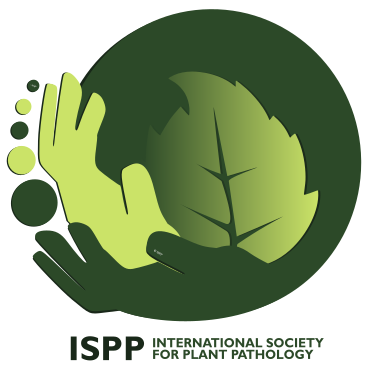International
Society for Plant Pathology
TASK
FORCE ON GLOBAL FOOD SECURITY
CHALLENGE
PROJECT 2007
African
proposal successful
A proposal from the University of Pretoria has been selected to address the
Task Force objective to: "Raise the profile of plant disease, as a
contribution to the challenge of global food security"
Applications for the 3-year, $50,000 award, from 15 countries, were numerous
and diverse. Selection, first by the Task Force and then by ISPP's Executive
Committee, was based primarily on the degree of match to the objective of the
Call for Proposals. The successful proposal is entitled: Changing Public
Perceptions and Opinions on Global Food Security
Professor Lise Korsten of the University of Pretoria presents these
objectives of the project:
- To establish a Food Security Information Hub at the University of Pretoria
to build capacity in South Africa and Africa in Plant Pathology and to
create public private sector awareness of the importance of plant diseases
in food security. To link this hub with other information awareness projects
in South Africa. To develop marketing material such as brochures, videos
etc, for the public awareness programme. To purchase a second hand truck and
convert it into a Plant Pathology Science Information and Demonstrative
Laboratory vehicle that can travel between schools and science festivals in
South Africa to create public awareness and inform the public of food
security issues.
Background
The Task Force called for proposals with innovative ideas that may contribute
to raising the profile of plant disease, as a contribution to the challenge of
global food security. In particular, it was looking for projects that will help
to improve awareness of the impact and importance of plant disease. The Call for
Proposals included these guidelines:
- The project should give, within 3 years, a tangible output that is
able to effect change
- The output should help to demonstrate that plant disease is
important for food security. The output may be suitable for influencing
policy-makers, from a science base
- The output may be suitable for informing the public and/or teaching
students, from a science base. The project may aim to strengthen the
attractiveness of plant pathology to students
- The project may aim to strengthen data on the quantitative impact of
plant disease
- The project may be based on one or more case studies, from
developing or developed countries or both
- The project is likely to include field work and desk studies
- The project should be achievable with a contribution of no more than
$50,000 from ISPP, over a period of 3 years
- The project should be appropriate to the status of ISPP and to the
aims of its Task Force
Comments may be sent to the Chairman of the Task Force, Peter Scott at p.scott@cabi.org
.
December 2007

